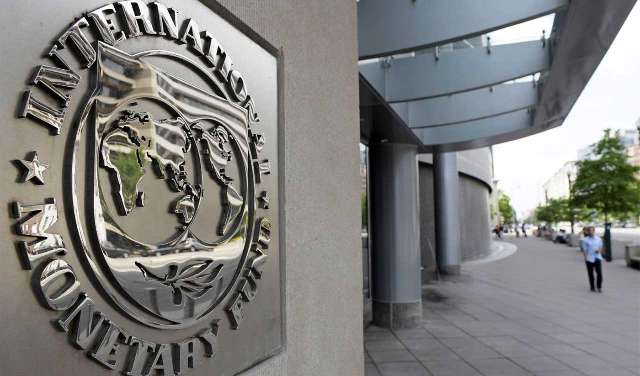- Justifies country’s poor ranking in Sovereign Fund usage
- Says fuel subsidy should target the poor
The International Monetary Fund (IMF), yesterday in Washington DC, United States, declared that Nigeria’s Excess Crude Account (ECA) was not achieving the goals for which it was set up.
Speaking during a media briefing on “Regional Economic Outlook: sub-Saharan Africa”, IMF’s Director of the African Department (AFR), Abebe Selassie, said: “The concern that we have is about the ECA, because if you recall that the ECA economically was set up to save resources when oil prices are high, and to be drawn on when oil prices are low. We do not think that the ECA has been doing effectively enough jobs that way.
“Because you see, when oil prices fell, the economy was very hard in the last couple of years, we feel like much better job could have been done, saving enough more in the ECA when oil prices were at $100 and $120 per barrel.”
The poor performance of the ECA, the IMF chief said, largely influenced IMF’s decision to rank Nigeria second worst in the world in the use of Sovereign Wealth Funds.
The Bretton Wood Institution rating was based on the corporate governance and transparency scores of the sovereign wealth funds and the size of assets as a percentage of 2016 GDP of the countries considered.
Selassie, who was speaking on the reactions trailing the negative ranking, said: “I want to be precise on this issue because I have heard a lot of noise concerning it. There have been two Sovereign Wealth Funds in Nigeria. There have been the Excess Crude Account (ECA), and the Nigeria Sovereign Investment Authority (NSIA). The NSIA is running transparently, on standard best practice and it has been doing a good job.”
Also justifying why removal of subsidy was important, Selassie said it was because the lion share of the benefit of the subsidy went to the rich people.
According to him, “If you think of the subsidy, who drives the big cars, who uses the biggest generators in Nigeria? It is not to say poor people are not going to benefit when subsidies are removed that is why our advice is that policies like subsidy removal has to be tied to social protection measures for the poorest people.
“We need to do this. In aggregate, if you have hundred dollars being spent on subsidy, my sense is the lion share – 70 to 80 per cent tend to go to the richer people. So, what we have to do is introduce reforms, find a way for the poor to benefit more. I think it is better to use that resource to invest in health, to build more roads and education.”
He expressed optimism that the African Continental Free Trade Agreement (AfCFTA), a trade agreement between 49 African Union member states, which aims to establish single market followed by free movement and a single-currency union, would achieve integration among member states.
“From our perspective, we think that the AfCTA will help the region integrate. It has been the dream of our leaders dating back to independence days and we think that it is a very important initiative and beyond politics, it will have a positive impact economically.
“Like all trade agreements, like all integration measures, there can be adverse effects, but can these be identified and policies introduced to address them? We have to look at the big picture. Coming to Nigeria specifically, we think that Nigeria will also benefit as the largest economy from joining the AfCTA and being a full participant of that.”
Source: THISDAY













